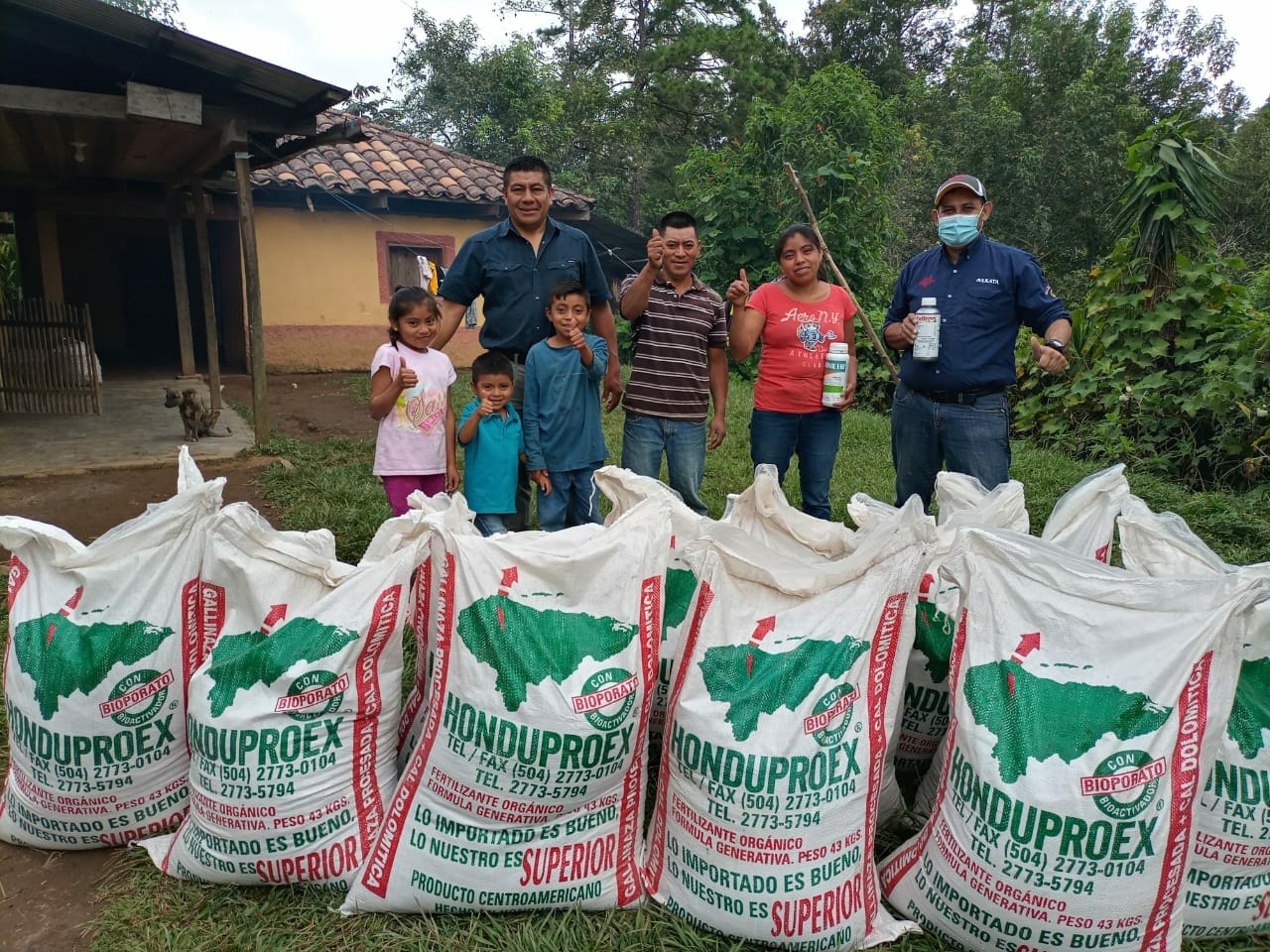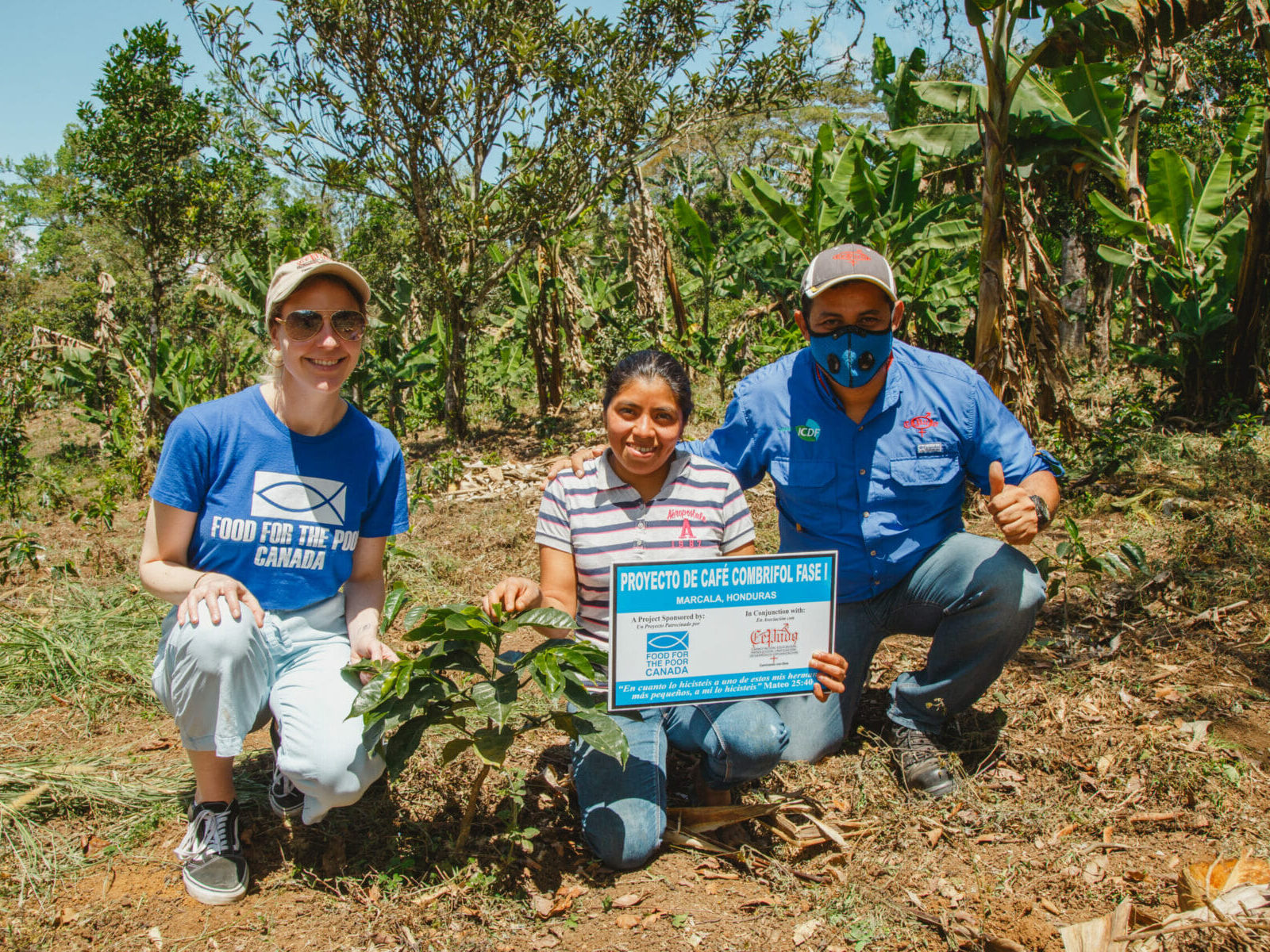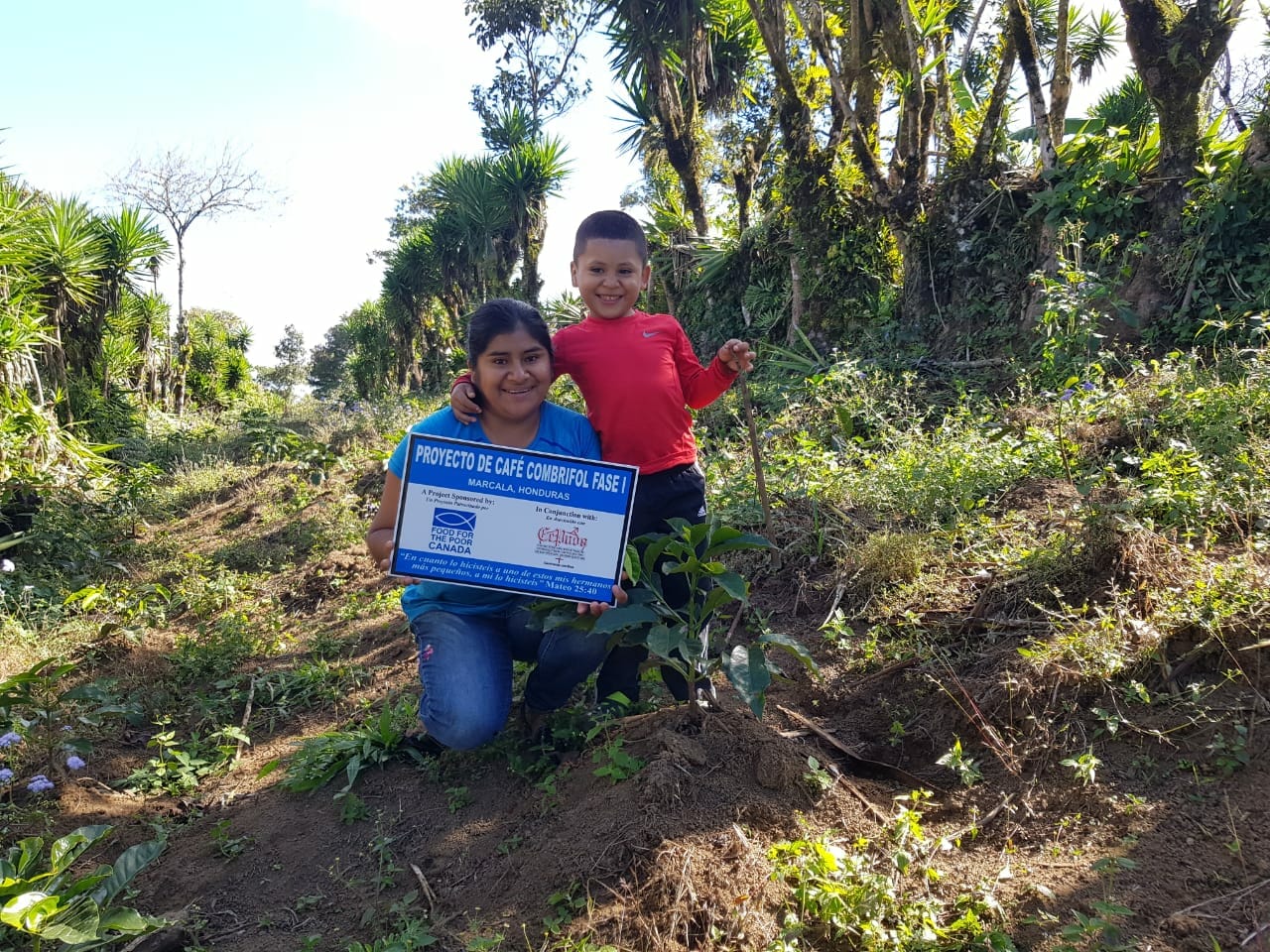After some more community visits and a stop to see the work of the Lenca weaving artisans’ group, we went to the coffee farms in Marcala, an area known for its optimal climate for coffee harvest and one of the largest coffee production areas in the world. A typical harvest period takes three years from the time a coffee plant is young, to the point where it grows into a mature plant and is producing coffee beans. Similar to the honey, by planting fruit trees (mainly citrus), the coffee beans take on the characteristics of those plants such as colour, taste, and smell. All coffee beans are certified organic, as there is no pesticide or chemical usage throughout the growing process. The soil is inspected in advance to ensure that the coffee can be given the organic stamp of approval before being sold to buyers in Europe.



FFPC’s coffee project is currently heading into its second year, with seven beneficiary farmers continuing to care for their plants and receive ongoing technical training and assistance from the local agronomists. By 2024, their plants will be ready for commercial harvest. During the trip, I had the pleasure of meeting one of our coffee beneficiaries who is being supported by Canadian donors. Dilcia lives with her husband and three children, and has over the past year been tending to her plants, preparing them for harvest in two years’ time. Currently, Dilcia has one manzana of land, equivalent to 1.72 acres, where she has planted 3,000 coffee plants. This quantity is enough to help her produce up to 1,500 kg of coffee for commercial harvest and sale to international buyers. With the income she will make from these sales, she will be able to send her children to school, something she was previously unable to afford, and provide her family with the basic necessities to live a sustainable life.
